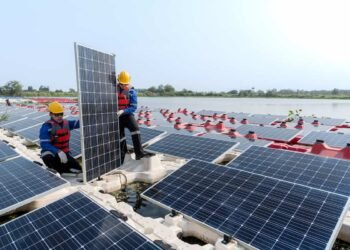The parliament of ECOWAS has called on member states to increase their investment in agriculture and health in order to address the worsening food crisis following the COVID-19 pandemic. The speaker of parliament, Sidie Mohammed Tunis made this call in his closing remarks during the Delocalized Meeting of the ECOWAS Parliament on agricultural production, food security and the fight against COVID-19, which was held in Bissau, Guinea Bissau.
The meeting was organized by the Joint Committee on Agriculture, Environment, Water Resources and Sustainable Development, Industry and Private Sector, Health, Energy and Mines, and Social Affairs, Gender, and Women Empowerment, on the theme “Agricultural Production and Food Security in the ECOWAS Region under Covid-19 Pandemic.”
Having observed that the region may face many challenges in implementing the commitments made as some member countries are in severe economic crisis while some are still focused on tackling other pressing challenges, the Speaker said “nevertheless, with a concerted efforts, we can succeed in our battle against declining food supply and demand, malnutrition, decreased immunity, as well as exposure to COVID-19 and other diseases.”
COVID-19 has made larger economic impacts on the region with the United Nations estimating that over 40 million people across West Africa could face desperate food shortages in the coming months. Even before the global COVID-19 pandemic broke out, food insecurity was a serious concern throughout sub-Saharan Africa driven by a variety of factors including economic shocks, climate change and conflicts. The World Health Organization (WHO) has expressed concern at the potential impact of COVID-19 on food security, which is likely to exacerbate the already considerable burden of malnutrition in Africa. According to the Food and Agricultural Organization, (FAO) about 208.1 million people in West Africa are experiencing moderately to severe food insecurity adding that the pandemic could push an additional 9 million people into chronic hunger by the end of 2020.
COVID-19 has exacerbated food shortages, as food imports, transportation and agricultural production have all been hampered by a combination of lockdowns, travel restrictions and physical distancing measures. Experts have said it would require the collaboration of multilateral agencies and other stakeholders to find new and innovative strategies to tackle the negative impacts of the pandemic in the region.
Sidie Mohammed Tunis, however, expressed hope that the regional legislature is prepared to follow up on the recommendations emanating from the discussions made in Bissau to address the challenges. He also pledged the support of the Parliament to the ECOWAS Commission and other Institutions in ways that will guarantee essential healthcare services, facilitate cross border activities, as well as the allocation of resources to fund efforts that are geared towards food security and agricultural development across the region. The Speaker, thanked the President of Guinea Bissau, Umaro Embalo, and lawmakers from the country for their hospitality and appealed to all the regional parliamentarians to remain committed and work towards making the region healthy to attain its full potentials in food security.
“I also hope that we will work actively to ensure that the outcome document from this meeting, which emphasizes essential healthcare services and food security as key areas for accelerated action, will be implemented to the latter,” he said.
“I can assure you that I am committed to paying additional attention on healthcare during my tenure as Speaker of the ECOWAS Parliament. I pledge to rally an unprecedented political commitment for investment in healthcare, aimed at changing the lives of millions of our people. It’s time to make it happen, and we can. I believe it will happen,” he added.
Some recommendations pointed out during the Guinea Bissau meeting include: lifting of restrictions that hamper economic activities in the countries such as opening of all markets and business enterprises; opening up closed borders and allowing movement goods and services across borders; and making investment in agriculture to promote strategic projects for food security and food sovereignty. The parliamentarians also recommended investment in small scale businesses affected by the pandemic adding that adequate attention and investments be made in the prevention, control and treatment of other diseases like malaria, cholera and diarrhea.



















